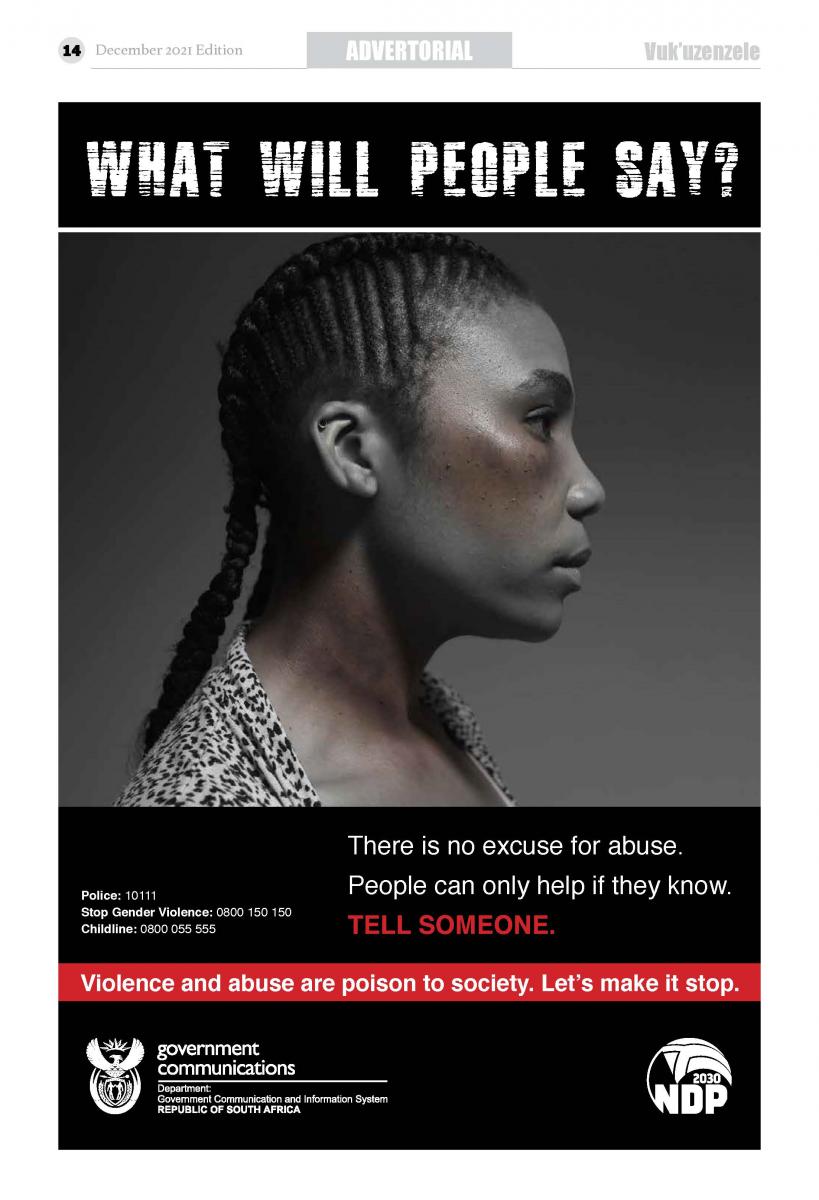Dec 2021 Edition
Dec 2021 Edition vuyelwan
English PDF version
Translations
Afrikaans
isiNdebele
isiXhosa
isiZulu
Sepedi
Sesotho
Setswana
Siswati
Tshivenda
Xitsonga
All you need to know about sexual consent
All you need to know about sexual consent vuyelwanYou may be guilty of committing a sexual offence without even knowing it, if you are not aware of the laws around sexual consent in South Africa.
Before you engage in a sexual activity with anyone, you need to be sure they have given their full consent and are over 16 years of age.
National Prosecuting Authority (NPA) Senior State Advocate Mzoxolo Rusi from the Sexual Offences and Community Affairs Unit, spoke to Vuk’uzenzele to explain sexual consent under South African law.
Consent has to be free and voluntary. A person must not be forced to agree to a sexual activity.
“There is also a difference between consenting and submitting. Some people may find themselves not wanting to have sex, but the circumstances at the time force them to submit themselves to a sexual activity. You must be sure that the person you want to be intimate with is voluntarily agreeing, and not submitting themselves,” he says.
Children under 16 cannot consent
Under South African law, any person under the age of 16 may not consent to any sexual activity, because they are legally minors. Even if the minor has voluntarily agreed to take part in a sexual activity, it is still unlawful and the adult will face statutory rape charges.
However, if two minors are less than two years apart in age, and both agree to a sexual activity, police will not charge them, says Adv Rusi. Instead, he says, they may be sent for counselling. 
If the children are more than two years apart, however, the older one will be charged.
Adv. Rusi says the NPA has had cases in which parents want charges pressed, but the children refuse to co-operate, because they say they are in a relationship with the other person.
“In that case, we encourage parents to take their children for counselling, so they realise they were violated. Even if a person realises many years later that they were sexually assaulted, they need to come forward and we will investigate. Rape cases never get old,” explains Adv Rusi.
Sexual offences do not only include the obvious cases of rape or sexual assault. Other offences include:
Using your power to pressure someone into giving consent. For example, a parent or a teacher cannot use their status and financial power to get a child to engage in sex with them.
Misrepresenting yourself. There are cases in which an identical twin has sex with a person who has consented to sex with the other twin.
Having sex with a drunk person. An intoxicated person cannot give consent. Letting someone buy you drinks or a meal is not consent.
Having sex with a mentally challenged person. In most cases, a mentally challenged person has no understanding of the sexual activity or even knowledge that they need to give consent.
Withdrawing consent
A person may change their mind even after giving consent – even during the act. When a person says ‘stop’, you have to stop.
If you are a victim of gender-based violence (GBV), or you know someone who needs help, contact the national GBV Command Centre;
Call 0800 428 428
Send a ‘please call me’ by dialling *120*7867#
SMS ‘help’ to 31531
Assess your finances
Assess your finances UrsulaAs many people spend more money than they can afford to pay back over the festive season, the Credit Ombud has provided some credit advice to help individuals make better financial decisions. 
According to Kabelo Teme, the Communications Liaison Officer at the Credit Ombud, when a person applies for credit, there are guidelines that the credit provider must follow in terms of the National Credit Act. This is to ensure that people will be able to pay back the money or pay off the goods.
“Getting stuck in a debt trap causes frustration that may lead to depression, because you feel that debt has overpowered you and you no longer have any control. We want to teach consumers to take that control back. A sure way to do this is to do a self-evaluation of your financial state,” says Teme.
She explains that consumers should look at their finances before they apply for credit.
“Credit providers are required to do an affordability assessment. You have to do a realistic budget that includes necessary expenses and everything else on which you spend money. Get a three-month bank statement and see how and where you spend your money.”
Teme says consumers should also ask themselves if they really need or only want an item. “At times, what we want can wait. Save up for an item or lay-bye it. If you need to draw up a list of pros and cons, then do so. Do not apply for credit if you don’t have a plan to pay it back.”
Consumers should also be aware of interest and added credit fees, says Teme.
“Before you put your signature on the dotted line, know the total cost of the credit and the total monthly instalment.”
She says consumers must also be given a pre-agreement statement and quote before they sign a credit agreement.
“You have five business days to consider the offer, and you don’t have to accept it.”
It’s also important for consumers to check their profile at the Credit Bureau. “You can do this for free, once every 12 months, and can dispute any incorrect or outdated information,” says Teme.
How to check your credit profile?
The Credit Ombuds advises consumer to contact the major credit bureaux for information on credit profiles. Their contact details are as follows;
- TransUnion - 0861 886 466 www.transunion.co.za webadmin@transunion.co.za
- Compuscan - 0861 514 131 www.compuscan.co.za za.consumercare@experian.com
- Experian - 0861 105 665 www.experian.co.za EZA.consumer@experian.com
- XDS - 0860 937 000 www.xds.co.za info@xds.co.za
- VeriCred - 011 789 3042 www.vccb.co.za
- TPN - 0861 876 000 helpdesk@tpn.co.za www.tpn.co.za
The Credit Ombud provides free assistance and advice for all credit bureau and credit agreement-related matters. For assistance, call 0861 662 837, send an SMS to 44786 (free), email ombud@creditombud.org.za or visit www.creditombud.org.za
Be sun smart this summer
Be sun smart this summer UrsulaEven dark-skinned people can get skin cancer, so it is wise to follow basic safety measures when outdoors this summer. 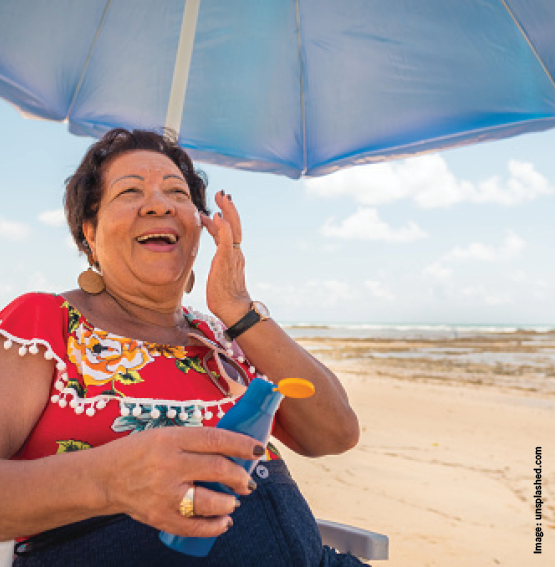
Summer is here and that means South Africans need to protect their skin from the harmful effects of solar ultraviolet (UV) radiation, which is a risk factor for skin cancer.
Despite popular belief, even those with darker skin can get skin cancer, although they are generally less susceptible because their skin contains more natural melanin, which protects against sun damage.
“The good news is that skin cancer can be prevented by respecting the sun. At least 80% of sun-induced skin damage occurs before the age of 18 and only manifests later in life,” says Lucy Balona, Head of Marketing and Communication at the Cancer Association of South Africa (Cansa).
She says it is imperative to take particular care of children in the sun, whether it is at the pool, on the beach, at play, or at school.
Babies younger than one should never be exposed to direct sunlight, says Balona.
“People with fair skin, especially those with red hair, moles or skin spots, as well as people with a personal or family history of skin cancer, or who play sport outdoors, work in the sun or spend a lot of time driving, are considered high risk."
Basic safety practices
Balona has provided these sun-smart tips:
- Use sunscreen – The use of sunscreen is not a licence to ‘bare all’ in the sun, however. Avoid direct sunlight between 10am and 4pm, when the sun’s rays are most dangerous.
- Keep babies out of direct sunlight – Their skin contains too little melanin and as such, cannot provide enough protection from the sun.
- Wear sunglasses and a sun hat – This helps block UV radiation around the face, eyes and neck.
- Hydrate – Drink water throughout the day and stay hydrated.
For more information on being sun smart, visit the website www.cansa.org.za, call 0800 22 6622, WhatsApp 071 867 3530 (isiXhosa, isiZulu, siSwati, Sesotho and Setswana), or 072 197 9305 (English and Afrikaans), or email info@cansa.org.za
Best sheep farmer in Mbhashe municipality
Best sheep farmer in Mbhashe municipality vuyelwanSheep farmer Nokwanda Booi (49) never expected to win the best ram farmer award in the Mbhashe Local Municipality Ram Competion.
Booi says she feeds her award-winning sheep a protein energy mineral supplement, which is mixed with grated maize.
“My ram is of a better quality than the other sheep in the village because of its special diet,” says the resident of Zundwane Village in Dutywa in the Eastern Cape.
Booi, who was the only female entrant, won a Dohne Merino ram, animal feed and sheep medication.
She entered after officials from the Department of Rural Development and Agrarian Reform (DRDAR) visited the region and shared news about the competition with the local farmers. 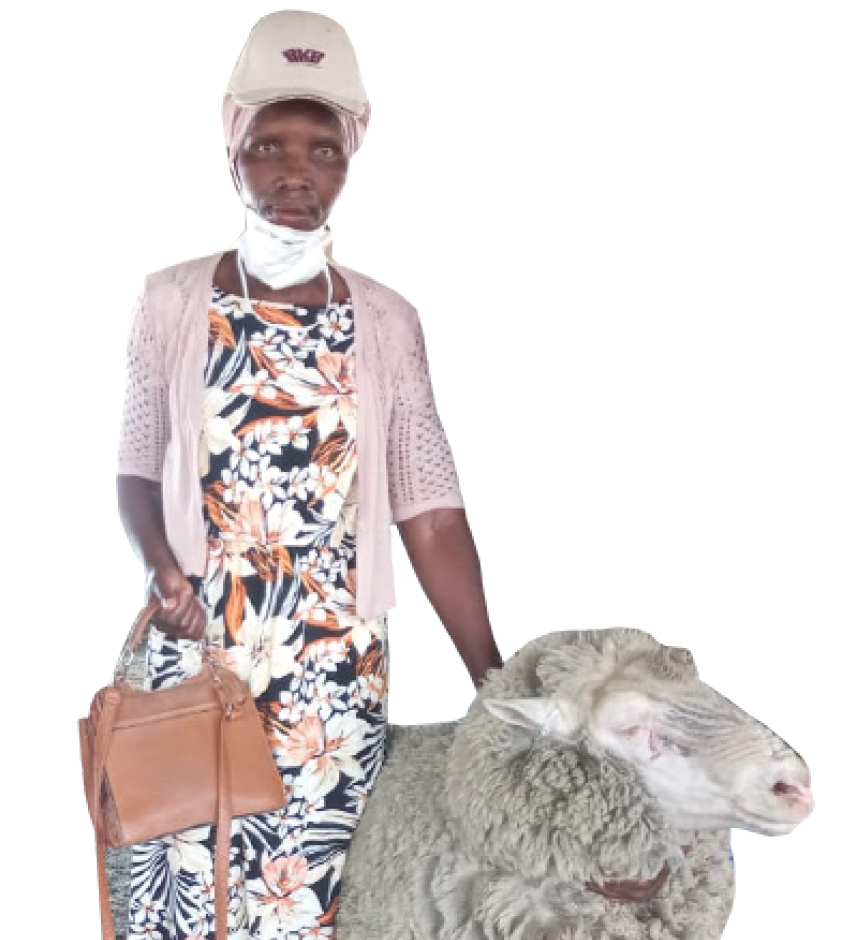
Booi, who started farming in 2016, says: “It was my first time entering the competition, and I didn’t expect to walk away with the trophy among men.”
The annual competition was started by local sheep farmers who wanted to encourage the purchasing of high-quality rams for breeding.
She says her ram, bought in March 2020, has already produced 10 lambs, which are improving the quality of her stock and they are also used to generate income through wool shearing and milk production.
Booi added that being involved in sheep farming has changed her life and she is now able to provide for her family.
Mbhashe Municipality Mayor, Samkelo Janda, said it was important that local farmers take part in the rural economy.
“We want agricultural activities to take centre stage in our economic development as this municipality,” said Mayor Janda.
The annual competition is hosted every year in October.
Farmers who would like to participate in the competition can get information from their local DRDAR extension officers.
Alternatively, they can visit www.drdar.gov.za or call the DRDAR’s head office on 0800 203 025.
Botlhale Tshetlo – queen of natural hair
Botlhale Tshetlo – queen of natural hair UrsulaHair salon owner Botlhale Tshetlo believes that natural black hair is ‘uniquely you’. 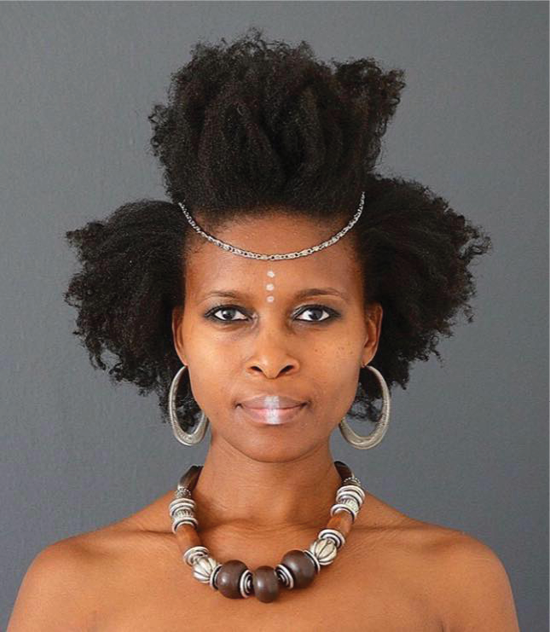
Tshetlo owns Hairtural Studio, a natural hair salon based in Bryanston, Johannesburg, that does not use combs, hair dye or heat on its clients’ hair.
“We specialise 100% in natural hair. The vision of the brand is about being free, free to be. It’s about black consumers having the freedom to celebrate and enjoy the uniqueness of their natural hair – and not have it benchmarked against western standards of what beautiful hair is,” says Tshetlo.
She came up with the idea of her hair salon when she was diagnosed with rheumatoid arthritis. This is a disease that can cause joint pain and damage throughout the body.
“I had to put my career in the finance industry on hold to get well at home. It was during this time that my creative flare came into play. In 2013, I was having a proper bad hair day. I let my afro free and made a decision to understand it better,” she says.
After struggling to find healthy, natural haircare products for herself and her children, Tshetlo started mixing her own products using ingredients from the kitchen, like olive and coconut oil.
“Our hair started getting healthier and that’s when friends and family wanted the products. When demand for the products grew, I knew I had to think about providing a service and looking at distribution,” she says.
Tshetlo formally launched her haircare range in 2014. In 2016, she opened her hair salon and, a few months later, opened Autum, a speciality retail store for natural hair and skincare.
With financial assistance from the Small Enterprise Development Agency (Seda), Tshetlo was able to get her products tested so that they meet standards set by the South African Bureau of Standards. She was also able was able to rebrand and market them.
She now manufactures her retail and salon treatments at the salon. “Being in the entire value chain of hair care is a competitive advantage. It also gives us a better overview and understanding of the entire industry,” she says.
Tshetlo employs 16 people, 11 in the salon, four in manufacturing and one at the retail store. She plans to open more branches across the country.
For more information, visit Hairtural Studio at www.hairtural.com or call 011 234 1642.
For more information about Seda support, visit www.seda.org.za or call 012 441 1000 / 0860 103 703.
Breaking barriers to entry in the Public Service
Breaking barriers to entry in the Public Service UrsulaAs the challenge of unemployment among graduates with a post-National Senior Certificate qualification is growing at an alarming rate, the Public Service is enabling them to gain knowledge and experience through the Public Service Graduate Internship Programme. 
The programme, implemented by the National School of Government, prepares graduates to access employment opportunities in the Public Service. It is also open to newly appointed interns in government departments.
Participants attend classes, facilitated by public servants, for five working days, after which they receive a certificate of completion.
The orientation programme is underpinned by values and principles found in Chapter 10 of the South African Constitution. The programme is aimed at orientating learners to the Public Service and generating awareness around how it is organised and how it functions.
How the programme shapes participants
The programme shapes young graduates into public servants who:
- Break new ground; Graduates are taught to have the ability to change policies into action through government programes.
- Inspire success; Self-motivated and ready to motivate others to serve the public.
- Raise the standard; Responsive and capable of giving their best, regardless of whether they are in the front office or at management level.
- Believe nothing is impossible; Graduates should not use policy or resource constraints as an excuse for not doing work, but come up with turnaround strategies to salvage a failing situation.
- Make a difference to people; Always committed, results-oriented and measures the impact of their actions against the public’s expectations.
- Believe in collective responsibility and teamwork; Believe in partnership, consider the opinions of colleagues, peers and the public; and be able to network with organs of civil society, community development workers and other stakeholders.
- Are on board; Owns the processes of service delivery and understands that blame for the failure of the system should be laid squarely on their shoulders.
Course map and benefits
The programme consists of six units that equip graduates with knowledge, skills and values, an ability to understand the Constitution; an understanding of the overall government cycle; better knowledge and understanding of the Batho Pele Principles and how to apply them; how to successfully apply for a job in the Public Service; how to prepare for job interviews; and proper conduct in the workplace.
This information was supplied by the National School of Government.
For more information, visit www.thensg.gov.za. To book a course, call the contact centre at (012) 441 6000 or email contactcentre@thensg.gov.za.
Building a foundation for investment
Building a foundation for investment vuyelwanNormally, this is the time of year when we bring together investors from across the country and around the world for the annual South Africa Investment Conference.
We held the first Investment Conference in 2018 as part of our ambitious drive to raise R1.2 trillion in new investment over five years. The conference was attended by over a thousand delegates in 2018 and 2019, and in 2020 was held in a hybrid format due to the COVID-19 pandemic.
Together, these conferences raised just over R770 billion in investment commitments across a wide range of economic sectors.
The fourth South Africa Investment Conference would have been held in November 2021, but we decided to move it to March 2022 due to several other events taking place at this time. These include the local government elections, the COP26 climate conference and the Intra-African Trade Fair. Another important reason for holding it next year is that there will be far greater COVID-19 vaccination coverage by then, making both travelling and gathering easier. 
Although the fourth Investment Conference has been held over by a few months, our ambitious investment drive continues. Even in the midst of the challenging economic environment caused by the COVID-19 pandemic, which was exacerbated by the violence and destruction that occurred in parts of KwaZulu-Natal and Gauteng in July, companies continue to make good on their commitments and to look for other investment opportunities in South Africa.
In the last year alone, nearly R120 billion of investment commitments flowed into project construction or expansion. This means that around 38% of the total investment commitments – or R290 billion – have to date flowed into the economy. Some investments have been delayed due to COVID-19, particularly in hard-hit sectors like property development and tourism.
Pharmaceuticals is an exciting new area of growth.
Aspen Pharmacare recently launched its R3.4 billion expansion, which it announced at the 2018 Investment Conference. This investment has turned Aspen’s Gqeberha manufacturing facility into one of largest global manufacturing hubs for general anaesthetics and has also provided capacity over 100 million doses of the Johnson & Johnson COVID vaccine have been produced under contract.
The World Health Organization also chose South Africa to host an mRNA vaccine manufacturing hub with the Biovac Institute, which is a public-private partnership with government. South African-born Dr Patrick Soon-Shiong and his company NantWorks recently announced an ambitious initiative to build capacity for advanced health care in Africa. In addition to the investments they will bring, these developments will also contribute to our collective ambition for the continent to manufacture 60% of its vaccine needs by 2040.
Energy is another area of growth. The 25 preferred bidders in the fifth round of our Renewable Energy Independent Power Producer Procurement Programme are together expected to invest around R50 billion into the economy. The increase of the licensing threshold for embedded generation to 100 megawatts is likely to result in substantial private investment in electricity generation projects.
South Africa has recently secured an initial commitment of around R131 billion to fund a just transition to a low carbon economy by investing in renewable energy, green hydrogen and electric vehicles. This commitment by the United States, United Kingdom, France, Germany and the European Union is in line with the Paris Agreement, which obliges wealthier countries to support decarbonisation in the developing world.
These energy investments will help us overcome the debilitating load shedding that the country is currently experiencing, as new electricity generation capacity comes online.
Several new investments in datacentres and undersea cables will not only bring in new investment, but will provide the infrastructure needed for the growth of technology and telecommunications industries.
An important part of our investment drive are the far-reaching structural reforms we are undertaking in areas such as energy, telecommunications, water and ports and rail. These reforms will improve efficiency and competitiveness, bringing down the cost of doing business in South Africa, and encouraging greater private investment in our economic infrastructure.
We now have 13 special economic zones across the country, providing investors with targeted investment incentives, preferential tax rates and export support. These provide an attractive manufacturing base for companies seeking to supply both local and international markets. Their value has increased further with the establishment of the African Continental Free Trade Area, which officially commenced trading at the beginning of the year.
While the rate of investment has slowed due to the effects of the pandemic, and several projects have been delayed, the investment drive is beginning to gather pace once again.
As we make progress with the implementation of the Economic Reconstruction and Recovery Plan – with its focus on infrastructure, industrial development, employment and structural reform – the environment for investment will improve further.
Bullying survivor pens book to help others
Bullying survivor pens book to help others UrsulaA new book is teaching parents and teachers how to spot abuse and bullying. 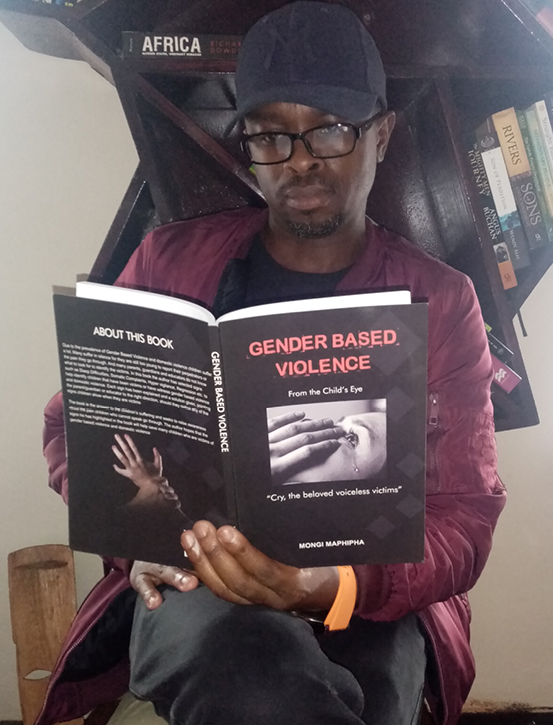
Written by Mongi Maphipha (44), Gender-Based Violence: From a Child’s Eye assists parents and teachers to identify the signs of bullying and abuse in children.
Maphipha, a Gender-Based Violence (GBV) activist who was bullied as a child, says the book will assist parents to get their children the help they need.
“The book, through fictional short stories, educates parents about what children go through when they are being abused or bullied,” he says.
The book has 15 topics, each of which tells a story that led to the chapter’s title. In the first chapter, it deals with sleep difficulties experienced by a six-year-old after witnessing his neighbour slap his wife.
“The book is a guideline for individuals to seek more information about GBV and bullying,” he adds
Other topics covered in the book that parents can look out for as symptoms of bullying include;
- Angry Outbursts;
- Physical pain;
- Low Self-esteem;
- Depression;
- Resentment;
- Anxiety.
Maphipha says the book is about informing the reader what could be the cause of the symptoms used in the story.
Parents and adults who read Gender Based Violence: From a Child’s Eye can use the information in the book to know what is happening and how to tackle the issue.
The book can be obtained from Maphipha by sending him an email at mongimaphipha@gmail.com or calling 081 579 9919.
COVID-19 jab safe for HIV positive people
COVID-19 jab safe for HIV positive people vuyelwanHIV activist Thandi Maluka (52) is fully vaccinated against the Coronavirus Disease (COVID-19) and urges other people living with HIV to vaccinate to save their own and others' lives.
Maluka, who is HIV-positive, did not have any complications from the COVID-19 vaccine.
She encourages everyone living with HIV to get vaccinated so that HIV programmes around the country can go back to normal and health practitioners can fully interact with people.
Vaccinating is not about an individual, it is about ensuring that those around you are protected so that the country can eventually be free from the virus, she says. 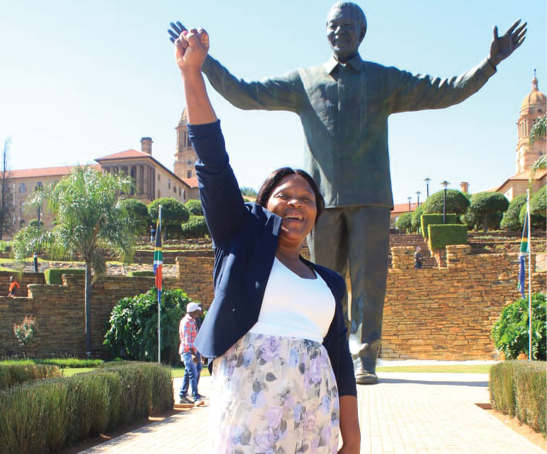
“We have to take the lead in the vaccination programme to prevent the spread of COVID-19 and reduce morbidity and mortality. As people living with HIV, we need to play our part in the reduction of the high rate of death.”
Maluka says it is worrying to hear the myths about how the vaccine is not good for people living with HIV, as this could cost lives. People living with HIV must not forget that so many myths came about when South Africa started rolling-out HIV treatment. Many of those who believed the myths refused to take their treatment and lost their life unnecessarily, she says.
“The COVID-19 vaccine does not affect antiretroviral therapy (ARV). ARV helps your immune system to be strong and that prevents opportunistic infections from affecting your body. Let us stay away from myths. We overcame HIV treatment myths, and we need to do the same with those about the COVID-19 vaccine,” she says.
According to the National Institute for Communicable Diseases, people living with HIV are at great risk of death from COVID-19. Taking the vaccine reduces their chances of death.
Possible side effects
Just like anyone else who is vaccinated, people living with HIV could have some side effects. This does not mean there is something wrong with the vaccine, says Maluka.
“Not all of us experience side effects. It depends on how each person’s body reacts to the vaccine, whether they are living with HIV or not. Some people have minor side effects and some don’t have any. All of this has nothing to do with one’s HIV status,” she adds.
This year’s World Aids Day theme is: ‘End inequalities, AIDS, TB and COVID-19: Get tested. Get vaccinated. Adhere to treatment’.
The international day is dedicated to raising awareness of the AIDS pandemic, which is caused by the spread of HIV, and mourning those who have died from the diseases.
For the latest COVID-19 vaccination sites, visit: https://sacoronavirus.co.za/active-vaccination-sites/
Court preparation officers ease the trauma of testifying
Court preparation officers ease the trauma of testifying vuyelwanPeople who have lived through an act of violence or sexual assault, or those who have witnessed it, are often further traumatised by the court proceedings that may follow.
Appearing in court to testify as a victim of Gender-Based Violence (GBV) can be intimidating and stressful, but a court preparation officer can help you get ready for the trial.
Thobekile Chuene works as a court preparation officer for the National Prosecuting Authority at the Pietermaritzburg Magistrates’ Court in KwaZulu-Natal.
She is one of 161 court preparation officers at various courts across the country who work under the Ke Bona Lesedi Programme, which is aimed at ensuring witnesses, victims and survivors know what to expect in court and are given socio-psychological support.
“Members of the public often don’t know how courts function. This creates a lot of stress for them when they have to appear in court. The trauma they suffered makes it worse,” Chuene says. 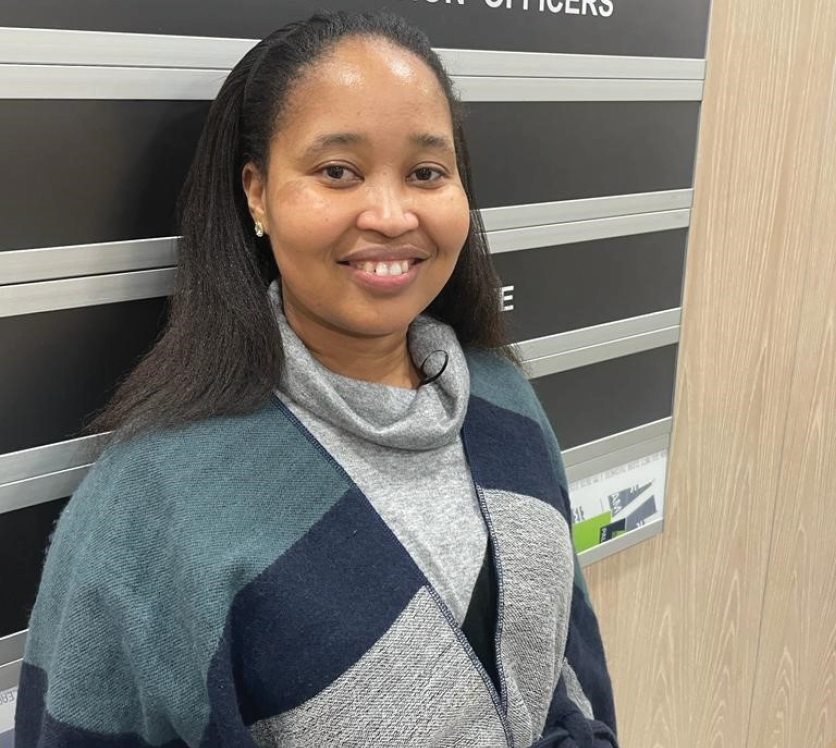
She says this service is important because a prosecutor’s case is only as strong as his or her witnesses.
“Prosecutors refer witnesses and complainants to me for preparation, and I contact them in advance to determine travel arrangements, any special needs, or any other fears or concerns,” she says.
She contacts and meets her clients on the day, or ahead of the trial, for a preparation session that takes about one hour.
Afterwards, she gives feedback to the prosecutor, who then knows what to expect from the witness on the stand.
“We recently had a conviction in a matter where two minors had been raped. The youngest victim was six years old and had to take breaks every 15 minutes. The court was prepared, because they understood and accommodated her needs,” she says.
The Ke Bona Lesedi Programme
Chuene says there are immediate benefits for people who use the programme, which is a free service. These include:
Reasonable accommodation will be pre-arranged to provide you with ease of access to court. This is on condition the court preparation officer or the prosecutor is informed prior to the day of trial.
Your ability to answer questions in court in the most accurate and truthful manner will be improved.
Your questions will be answered, and you will be given emotional support.
Your confidence will be improved.
The court preparation officer can be your support person in court, and can refer you and/or your family members for counselling.
When children are prepared, the court preparation officer will act as a temporary caregiver in court. Special care will be given to children, as they are specifically vulnerable.
The court preparation officer can help you write a Victim Impact Statement, in which you say how the crime affected you or your family.
Support for different age groups
Chuene uses different methods to assist victims of different age groups.
“When preparing children for a court appearance, there are tools that are used to help them to relax when they arrive in court, because it is a stressful place. These tools empowers them to testify and to understand the justice system in a child-friendly manner,” she says.
The tools include mops and broom puppets that represent the different role players in court; a bumble bee hand puppet with an empowering message behind it; and ‘Womba the Elephant’, which has an equally empowering message to help the child with his/her case.
Teenagers, young adults, and the elderly are assisted in a method that is appropriate to their needs.
To find out more, contact the National Co-ordinator of the programme, Karen Tewson, on 012 845 6399 or email ktewson@npa.gov.za or communication@npa.gov.za
Do not leave children unsupervised
Do not leave children unsupervised UrsulaWhile the festive season can be a happy time for parents and children alike, it can also be stressful to find ways to keep children safe when schools have closed, and parents have to go to work. 
Childline South Africa and the Department of Social Development recommend that children under the age of 18 should not be left unsupervised.
The department says leaving children unattended or in the care of other children is child neglect, which is when parents fail in their responsibility to provide for the child’s basic physical, intellectual, emotional, or social needs.
Childline’s Faiza Khota advises parents to find alternative ways to keep their children safe, rather than leaving them home alone.
“You can leave your child with someone that you trust, such as a close relative or family friend. You also need to take note of who will be on the same premises as your child while they are being looked after, so that you can assess the level of safety surrounding them,” says Khota.
She advises parents to speak openly to their children about safety and what to do when they do not feel safe.
Tips for parents to ensure the safety of their children:
- Children must memorise their parents’ cell phone, home and work telephone numbers, and their home address.
- Monitor children who arrive home with unwarranted and unwanted gifts.
- Parents should not trust people they do not know well to look after their children.
- Be wary of people not known to the family who offer to take your children out for a treat, such as ice cream.
- Children and teenagers should be given a curfew, so they know what time they are expected home after going out or visiting friends.
- Children – including teenagers – should not take food or beverages from anyone when out in public spaces or at private parties. They should serve themselves at parties, and keep their beverages with them at all times, so that they cannot be spiked with drugs.
- Make sure your child knows who to call in an emergency, or if they feel unsafe.
Khota says community members who would like to report suspicions of child abuse can call Childline SA’s toll-free number: 116.
Alternatively, call the police on 10111 or the Department of Social Development hotline: 0800 220 250.
How to grow veggies in a bag
How to grow veggies in a bag vuyelwanNot having enough space to produce vegetables at home should not stop you from growing your own leafy vegetables. There is another way to grow them successfully.
According to Dr Araya Hintsa, the Agricultural Research Council’s (ARC) Senior Researcher: Crops Science, plants can be grown in a bag system. This is when an old maize meal bag is used to grow food. When vegetables are planted in a bag, they grow vertically upwards, which means less space or land is needed.
This method of planting has numerous advantages, including that the bag can hold water for a longer time, without water and nutrients draining into soil. 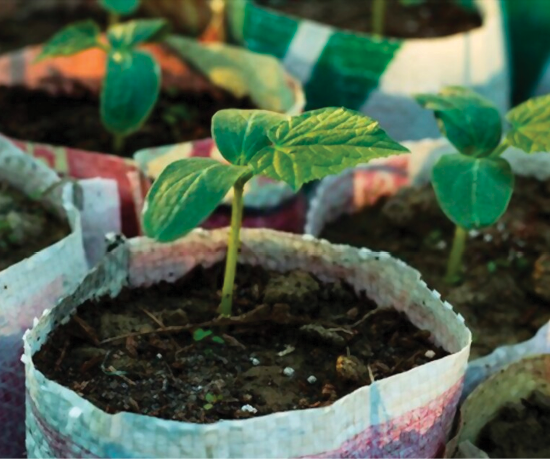
Plant leaves are not in contact with the soil, resulting in less effort to clean the leaves before eating or selling.
“This small bag system, when fully planted with spinach, for example, can feed a family of four, with a bunch of spinach every week,” says Dr Hintsa.
“Leafy vegetables such as kale, mustard spinach, Swiss chard, spinach, beetroot and lettuce can be planted successfully in the bag system,” he adds.
What you need to plant;
- An empty polyethylene maize meal bag.
- Fertiliser.
- Growing medium (compost, sawdust or soil with good drainage).
- Watering can.
- Seedlings.
Steps to follow;
- Wet the growing medium with water, to ensure good distribution of water during irrigation.
- Fill the maize meal bag with the moistened growing medium (an empty 80kg bag of maize meal can plant on average, 56 plants).
- Use a sharp blade to cut openings in the bag, at a distance of 20cm x 10cm for planting holes.
- Push the seedling root plug into the planting hole in the bag.
- Make sure that the bag is upright so that water can reach the plants.
- Make sure that the growing medium doesn’t dry out. Water the plants from the top of the bag and the water will drain down to the lower plants.
- Plants can be watered every second day. An 80kg bag requires between 60 litres and 90 litres of water per week.
- Add fertilisers such as kraal or chicken manure.
- Plants should be exposed to sunlight.
- After the first planting, do not re-use the maize meal bag, as it will tear and disintegrate over time.
For more information about various agricultural topics, visit the ARC’s information hub on its website at www.arc.agric.za/Pages/ARC-Information-Hub.aspx
Lodging GEPF complaints made easy
Lodging GEPF complaints made easy vuyelwanMembers, pensioners and beneficiaries of the Government Employees Pension Fund (GEPF) now have recourse when unhappy with the service they receive.
To ensure the GEPF members and their families are treated fairly, the board recently established an office to handle disputes. The Government Employees Pension Ombud (GEPO) is an internal but independent office of the GEPF.
The GEPF is among the largest pension funds in the world, with over 1.2 million active members and more than 450 000 pensioners and beneficiaries. The fund was founded and is regulated in terms of the Government Employees Pension Law.
Advocate Makhado Ramabulana has been appointed as the Ombud. He says the office was established to assist people who are unhappy with the services of the GEPF. 
It will be especially beneficial to people who cannot afford legal recourse. Before people take their disputes to the Office of the Public Protector or to the courts, they can seek mediation from the Ombud.
The Ombud will intervene in matters that lead to unreasonable delays in the processing of payments due to claimants. It may only mediate in complaints that have arisen within the past three years.
Other issues within the GEPO’s scope include:
- The failure of officials to perform their duties in terms of the Fund’s law and rules;
- Breaking a commitment without a justifiable reason; and
- Incorrect or misleading information provided by the GEPF employees.
Before lodging a complaint with the GEPO, a person must send a written complaint to either the GEPF, the Government Pensions Administration Agency (GPAA) or their employer, and give them a chance to settle the matter.
“You must allow them 30 days to correct the issues that you identified. If, after 30 days, your issues remain unresolved, you can submit a complaint to the Ombud,” explains Ramabulana.
The Ombud cannot accept a case if there is already an official investigation underway elsewhere.
“Within two weeks from the date that the complaint is received, the GEPO will consider [the case] and inform the complainant whether it can investigate and decide on the matter.”
If the Ombud refuses to investigate a complaint, the complainant can write to the GEPO office within 21 days providing reasons why he or she believes the complaint falls within the GEPO’s mandate.
Detailed guidelines on how to lodge a complaint are available on the GEPO website at www.gepo.co.za.
Complaints may be lodged online, in writing, or via email. For more information contact the Complaints Manager by writing a letter to PO Box 11005, Hatfield, Pretoria, 0028, email: enquiries@gepo.co.za or phone: 012 110 4950
MTN offers free digital learning
MTN offers free digital learning vuyelwanThe free MTN Online School has been launched and is now available to all learners and teachers who need access to official learning material.
The cellular network worked with the Department of Basic Education and the National Education Collaboration Trust to establish this integrated online portal for grade R to 12 learners.
When the Coronavirus Disease (COVID-19) spread to South Africa in 2020, schools without online facilities had to pause their teaching programmes. It is hoped that the MTN Online School will help close the gap between learners in public schools and those in private schools when it comes to access to learning materials.
“A full content library will be added to the platform and made available over a period of three years, focusing on key subjects. Video lessons will also be provided, with a sign language interpreter to accommodate deaf learners,” says MTN SA Chief Executive Officer Godfrey Motsa. 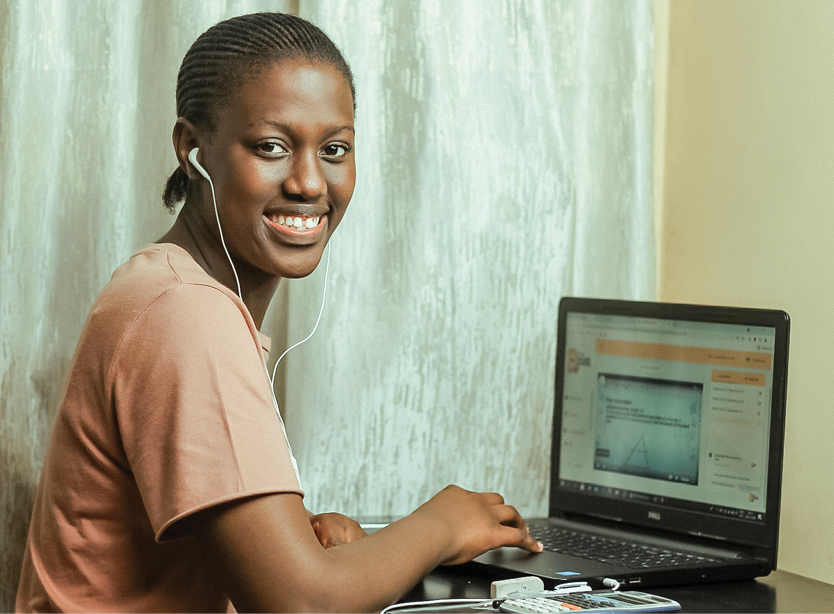
Basic Education Minister Angie Motshekga says the school is a major development for South Africa, because commonly used education content will be accessible to all learners in the country, wherever they are.
“The online school is a huge investment, and it will help government in addressing the digital divide. However, we will have to move with speed to provide more digital skills to teachers,” says Motshekga.
Simelokuhle Sisoka (17) from Old Mill High School in KwaZulu-Natal is one of the learners who have been using the online school to study for her Grade 12 final exams.
“The online school is of great help, and it really feels like you are in class with a teacher. There are videos and illustrations that explain things clearly. I also like how it is organised; each topic covered has its own video,” she says.
“There is also a help desk if you are having problems with the platform or the content,” she adds.
As part of the ongoing Presidential Youth Employment Initiative, some of the graduates recruited through the Basic Education Employment Initiative will be responsible for introducing learners to the online school.
Access the online school
The online school is available via the website www.mtnonlineschool.co.za. or the MTN Online School mobile app, which can be downloaded from the Android app store and the Apple iStore. Type ‘MTN Online School’, then follow the instructions to register.
Makana Local Municipality vaccinates all registered 50+ residents
Makana Local Municipality vaccinates all registered 50+ residents vuyelwanThe Eastern Cape’s Makana Local Municipality residents, who are over the age of 50 and registered for their Coronavirus Disease (COVID-19) vaccine, have all received the jab.
The municipality is among the first to fully vaccinate age 50+ residents who registered for the vaccine.
The Eastern Cape Department of Health says Makana Local Municipality has reached a positive milestone in the rollout of the vaccine. The department says in other areas of the province, residents only took the first jab and it is important that people take boths jabs so that they are fully vaccinated.
Siphiwo Mpumlo (54) from Makhanda (formerly Grahamstown) chose to vaccinate to protect the people he loves. He is one of over 7 310 people in the 50- to 59-year-old age group who have vaccinated by 8 November 2021.
Mpumlo, a father of three, says he was hesitant to vaccinate until a healthcare worker explained how the vaccine works. Then he knew that vaccinating is safe. 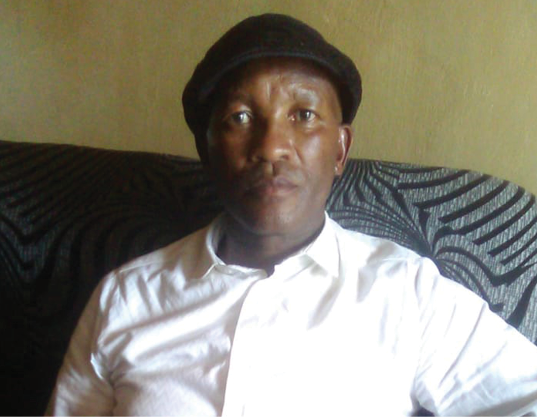
“The vaccine is not a cure and doesn’t mean you will never contract COVID-19, but it ensures that your body is stronger against the virus. Now that I am vaccinated, I stand a smaller chance of contracting the virus or being extremely ill from it,” he says.
The Eastern Cape Department of Health says over 2.6 million doses of the vaccine were administered to 1.8 million people in the province by 8 November, and over 1.5 million Eastern Cape residents are fully vaccinated.
In the Makana Local Municipality, 11 975 people over 60 have been vaccinated.
Also by 8 November, the municipality’s residents accounted for over 34 000 of the fully vaccinated people in the country, says Eastern Cape Health MEC Nomakhosazana Meth.
Mpumlo says he didn’t have major side effects from his first or second vaccine. “I went straight to work, but was severely tired by the time I got home.”
MEC Meth says the vaccine is safe and effective. “People must ignore the lies that vaccinated people will die in two years’ time after getting the jab. The vaccine is our biggest shield against this virus while scientists continue looking for a cure,”she
says.
NYDA mentors give entrepreneurs a helping hand
NYDA mentors give entrepreneurs a helping hand UrsulaStarting a business can be overwhelming, but thanks to a government programme, young people can learn from successful entrepreneurs. 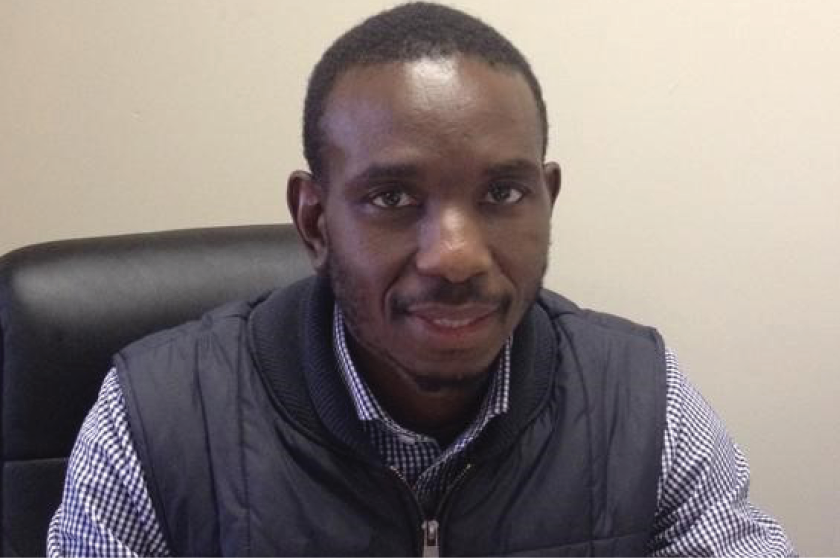
If you are a young person who is running a start-up business and you need guidance to become a successful entrepreneur, the National Youth Development Agency (NYDA) can help find a mentor to guide you.
Sandile Mazibuko (29) of Midrand, in Gauteng wants to become a successful poultry producer.
He established his business in 2020, but could not secure funding from the NYDA because he did not have a business plan, which is a requirement. He also struggled with financial management.
Mazibuko heard about the NYDA’s Volunteer Enterprise Mentorship Programme and applied so that he could get the guidance he needed to establish his business.
The Volunteer Enterprise Mentorship Programme aims to connect young people who own small businesses with experienced entrepreneurs who can give them advice and the skills needed to run a successful business.
His appointed mentor is helping him develop a business plan and work on his short and long-term business goals. One of these is to create jobs for others through the business.
“I also manage the business finances better now, compared with when I started, because my mentor holds me accountable. I will soon apply for funding from the NYDA,” he says.
Mwendabai Kalaluka (43) volunteered his time and skills as a mentor to empower struggling start-up businesses.
He is the founder and managing partner of Intellogic Africa Business Consulting, which specialises in offering business development and management services to small businesses.
“I joined the NYDA mentorship programme in 2016 and I have been running workshops for youth-owned businesses. Our business has offered mentorships to about 40 individual companies through the NYDA, and has also conducted group workshops over the years,” he says.
He believes the mentorship programme is beneficial to small businesses, because they gain the expertise and skills needed to run a business. These include human resource management, financial management and legal knowledge.
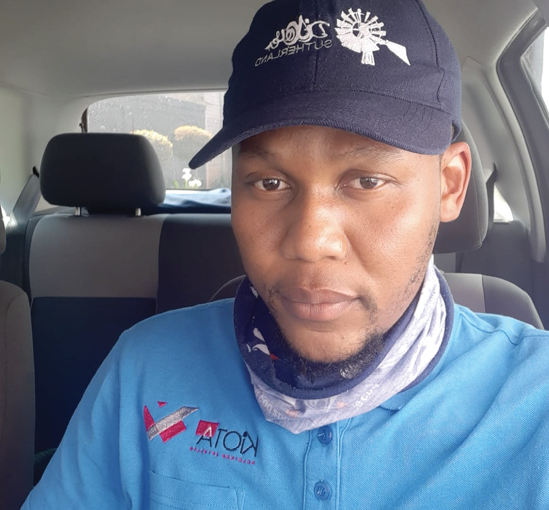 How does it work?
How does it work?
Once a mentor and mentee are matched, they sign an agreement with the NYDA that clarifies the terms and conditions of their relationship, and what should be achieved.
“There are no specific timeframes, but the mentor and mentee have to meet and communicate regularly so that they can work on the skills the mentee needs for his/her business to improve,” says Kalaluka.
Why volunteer mentoring?
The mentorship programme allows young business owners to get advice and support from business experts.
The NYDA says this programme also encourages successful entrepreneurs to contribute to economic growth in the communities in which they operate, by teaching them how to use business networks to improve their business offering and to create jobs.
It motivates business owners to establish relationships and support each other’s businesses by exchanging services through networking.
Become a mentor or a mentee
To become part of the programme as either a mentor or mentee, you need to submit an application form, accompanied by your CV, so that you can be vetted. The application form and supporting documents should be submitted to your nearest NYDA branch.
The forms can be downloaded from the NYDA website: http://www.nyda.gov.za/Products-Services/-Mentorship For more information, contact the NYDA on 0800 52 52 52 or visit www.nyda.gov.za
Pfizer jabs
Pfizer jabs UrsulaReport corruption via the anti-corruption hotline
Report corruption via the anti-corruption hotline vuyelwanIf you suspect corruption, fraud, theft or other wrongdoing in the public service, you are urged to report it.
Curbing corruption in the public service remains a government priority and the National Anti-Corruption Hotline makes it easy for members of the public to report suspected acts of corruption.
The hotline was launched by the Public Service Commission (PSC) in 2004 and since then, more than 100 000 calls reporting allegations of corruption and maladministration have been received. These calls by whistle-blowers have resulted in 24 035 cases of corruption, fraud and other crimes being investigated, says Public Service Commissioner Michael Seloane, who oversees all the work done by the commission.
Between 2020 and 2021, 337 cases were reported via the hotline. Thirty-five of these involve appointment and procurement irregularities that are being investigated by the PSC. The remaining cases were referred to other government departments or law enforcement agencies for investigation.
The Reconstruction and Development Programme (RDP) housing, tender and social grant irregularities are among the most common allegations made. 
“During the lockdown we received a lot of tip-offs through email. We also have an automatic message recording system for those who wish to call our hotline after hours,” Seloane says.
He adds that since the lowering of lockdown levels, there has been a steady increase in the reporting of social grant-related fraud, especially Social Relief of Distress grants.
To strengthen efforts to curb corruption, the State has capacitated law enforcement agencies with skilled personnel, and established the Fusion Centre.
The centre is a grouping of law enforcement agencies that share information and resources in the fight against fraud and corruption in the procurement of COVID-related goods and services.
What happens after a tip-off is made?
Seloane says when a case is reported via the hotline, early resolution officers check that all the relevant information is provided. This includes the details of who did what, when the alleged act took place, and why.
He says if wrongdoing is found – be it procurement and appointment irregularities, bribery, RDP housing related corruption, social grant fraud, illegal migration, assault, theft or fraud – the PSC either recommends remedial action to the relevant department or refers the case to the Hawks, SAPS or Anti-Corruption Task Team for further investigation.
Cases the PSC refers to departments for investigation, include:
- Public servants doing extra work for money without consent of the departments
- Undeclared conflicts of interests, and
- Unethical behaviour.
Seloane says the PSC gives government departments 60 days to investigate and close a case. He says the department then informs the PSC of its findings. “If we are happy with the steps taken by the department, we will close the case, but if we are not satisfied, we revert back to them.”
Anonymity guaranteed
When a whistle-blower does not want his/her identity revealed, the PSC hotline officer takes down only their contact details. This is important because if extra information is needed, the PSC must be able to contact them.
Whistle-blowers who report cases to the PSC hotline are assured protection if they want to remain anonymous, says Seloane. He explains that early resolution officers have been trained to ensure that a whistle-blower’s identity remains protected.
Seloane says South Africans must report corruption because it steals from the poor and stops development, which prevents the country from moving forward.
National Anti-Corruption Hotline:
0800 701 701 Whistle-blowers may also send tip-offs via email (integrity@publicservicecorruptionhotline.org.za) or fax (0800 204 965).
publicservicecorruptionhotline.org.za or fax (0800 204 965).
Risiha Programme assists vulnerable children
Risiha Programme assists vulnerable children UrsulaBusisiwe Jelecia Mhlanga is passionate about caring for children and the youth who are less fortunate. 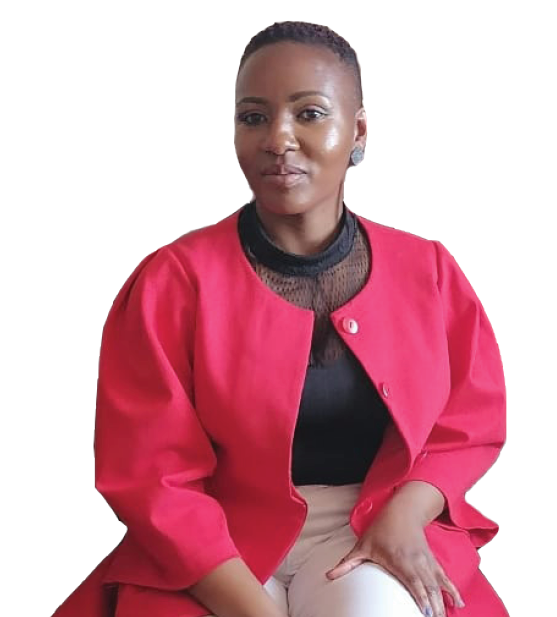
She is a child and youth care worker with the Department of Social Development’s (DSD) Risiha Programme. Mhlanga's job is to intervene and assist child-headed households.
The Risiha Programme runs across the country to assist vulnerable children and orphans, some of whom run child-headed households or live on the street.
“As child and youth care workers we are usually alerted by community members when children need help. Once we intervene, we conduct interviews with extended family members to understand what the household needs,” says Mhlanga.
She also conducts home visits and advocates for orphaned and vulnerable children as part of her duties.
Home visits include teaching children how to adapt and take care of themselves.
Mhlanga says the child and youth care workers help the children with their homework and chores to create a healthy and independent environment.
The programme also has a safe park, where children can play and enjoy various activities, such as drama, dance and poetry.
“We also do something for the children on holidays. Safe parks allow them to have a sense of belonging and sharpen their skills. The child and youth care workers use safe parks to observe children to see if there is a need for further intervention in their lives,” says Mhlanga.
Despite the closure of access points during lockdown level 5, the programme provided services to 192 741 children within their homes, the DSD says. Mhlanga also appealed to the community to infom DSD when children need help so that a child and youth care worker can intervene through the Risiha programme.
For more information about the Risiha programme call Yvonne Makhubedu at 066 480 7670, Portia Mthembu at 066 480 8979 or Joyce Ndzuta at 066 480 7245, who will direct community members to a provincial coordinator.
Science centre to sharpen skills
Science centre to sharpen skills vuyelwanThe mathematics and science skills of pupils in rural Eastern Cape schools are set to improve, following the opening of the Albertina Sisulu Science Centre in Cofimvaba.
Daan Jonker of the provincial education department says the multi-million-rand centre will be a mathematics, science and technology education hub. It will have training venues and permanent science exhibitions, and has the potential to serve the wider society within Chris Hani and surrounding districts.
The centre is the first in South Africa to be purpose-designed, with green science, technology and innovation used in the actual building.
Eighty percent of the schools that are intended to benefit from the centre are within a radius of about 60km, he adds.
What the centre offers
Focus areas include mathematics, physical sciences, life sciences, agricultural sciences, technical mathematics, tech sciences, information and communications technology, engineering graphics and design, and electrical technology.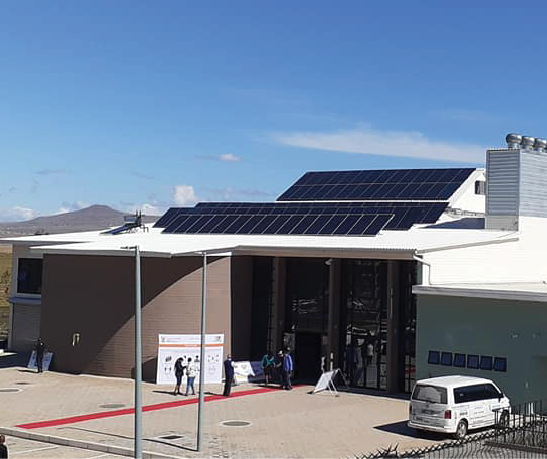
The centre will have multi-purpose mobile devices, 35 laptops donated by the Department of Basic Education, an indigenous knowledge system recorder centre, lecture theatre, planetarium and workshop.
“The science centre will establish links with existing national science centres and use their programmes to benchmark its business strategy. The well-established centres like Sci-Bono and Cape Town Science Centre will be used as points of reference,” says Jonker.
He says the Cofimvaba centre will assist with teacher development and training programmes, and will serve the 26 high schools in the area that previously relied on a mobile science unit donated by the Department of Science and Innovation and Sasol.
Schools thatwould like to makåe use of the centre can contact Jonker by email on daan.jonker@ecdoe.gov.za
Stokvel members warned to stay safe
Stokvel members warned to stay safe UrsulaLike many South Africans, Busisiwe Mkhondo (43), of Soshanguve, Pretoria, and the other members of her stokvels have been diligently saving throughout the year, planning to have a blissful festive season and some financial relief in January. 
Mkhondo says she expects to receive her stokvel savings and interest at the end of the year. However, she is worried about theft, which is always a concern when it comes to bulk stokvel pay-outs.
She says she knows of many stokvel members who have had their money stolen – either by thieves or corrupt stokvel administrators.
“Our stokvel, Divine on Monday, developed a system where the treasury responsibility does not rest with one person. The treasury committee is made up of three people, who are collectively responsible for recording, counting and banking the money,” she says.
Mkhondo explains that the secretary, chairperson and deputy chair provide support to the treasury committee.
“The money can be banked by any of the six committee members.”
According to the South African Savings Institute, low-income families have been saving through stokvels and burial societies for a long time.
“It is estimated that there are about 810 000 active stokvels, which collect about R50 billion in savings annually from more than 11 million members,” says Acting Chief Executive Officer (CEO) Gerald Mwandiambira.
Safety first
Kalyani Pillay who is the CEO of the South African Banking Risk Information Centre, says that this time of the year is particularly risky for stokvel social clubs. He warns members to be extra cautious.
Pillay shared the following safety tips for stokvel members;
- Avoid making cash deposits on high-risk days (such as Mondays after month-end).
- If possible, vary the days and times you deposit cash.
- Arrange for payments and pay-outs to be done electronically.
“It is very distressing that bank clients, who are the victims of stokvel robberies, are often injured or even killed during these incidents, which is why we urge them to find safer ways to transact, such as internet transfers or mobile banking, instead of carrying large amounts of cash,” says Pillay.
Turn your artistic idea into a business
Turn your artistic idea into a business UrsulaEmerging young artists across the country are invited to register for an opportunity that could turn their artistic ideas into a profitable business. 
Business and Arts South Africa (BASA) and the Department of Sport, Arts and Culture launched the Debut Programme on 15 November 2021, to provide business and entrepreneurial skills development to emerging South African artists.
The skills to be learnt will include how to launch, build and sustain creative business ventures.
BASA Chief Executive Officer Ashraf Johaardien says: “Knowledge and mentorship are key to preparing young creatives across the country for creative sector entrepreneurship.”
BASA Head of Programmes Boitumelo Motsoatsoe says the programme is also a space for artists to make the vital move into the market. It will showcase the diversity of talent and ideas emerging from young creatives across the country.
“We are working hard to make the project inclusive of rural artists,” says Motsoatsoe, who encourages business sector stakeholders to support the programme.
The programme is divided into three phases:
- Kickstarter Phase: Includes engagement workshops, Facebook live sessions, mentorship, networking and grant funding.
- Hlanganisa Phase: Includes engagement workshops, mentorship, grant funding, networking and a provincial art fair.
- Catalyst Phase: Includes e-commerce support, mentorship, masterclasses and networking.
According to BASA, participants do not need a registered company to receive any of the grants provided in the programme. However, all grant recipients are expected to utilise their grant in alignment with the budget or goals set in the training/workshops, and will be required to provide proof of expenditure and a narrative report.
To be part of the programme, register online at https://bit.ly/3bZLuUn. There is no closing date.
For more information, contact BASA at 011 447 2295/ 2182/ 2743 or email info@basa.co.za; or contact the NAC at 087 7000 683 or email info@nac.org.za
Understanding preterm birth
Understanding preterm birth UrsulaAfter a healthy and active two trimesters, the last thing Keneiloe Myoli (30) expected was to give birth prematurely. 
“This was my first pregnancy, after trying to fall pregnant for close to two years. I underwent multiple tests to see if there was something preventing my pregnancy, and there was nothing wrong,” says Myoli, who resides in Bloemfontein, Free State.
She eventually fell pregnant and had a smooth pregnancy.
“It was only in my third trimester that I was diagnosed with partial placenta previa, meaning I had to stop most of my physical activity and be careful not to rupture my placenta.”
Placenta previa is when a baby’s placenta partially, or totally, covers the mother’s cervix, making natural birth near impossible. It can result in preterm birth, which is when a baby is born before 37 weeks of pregnancy.
Other reasons which may lead to preterm birth include Polyhydramnios, where there is too much amniotic fluid around the baby during pregnancy. Amniotic fluid is a clear, slightly yellowish liquid that surrounds the unborn baby during pregnancy. High blood pressure and diabetes are also causes of a high risk pregnancy, which may lead to early birth.
“I gave birth at 36 weeks to a boy weighing 2.69kg. Unfortunately, Zukhanye, my son, also developed jaundice three days after he was born because he was a preterm baby.”
Myoli says her son was kept under phototherapy lights, clothed only in a nappy and with his eyes covered.
She says she was advised to feed Zukhanye every three hours so he could develop quicker.
“He had to be watched round the clock because he liked pulling off the glasses and they had to be kept on, as the lights could damage his eyes and blind him,” she says.
Dr Chantell Witten, of the University of the Free State, says improved antenatal care practices, maternal health and neonatal care help prevent the death rates of preterm babies.
“Women are encouraged to comply with the prescribed care recommendations during and after birth such as exclusive breastfeeding and giving babies skin-to-skin contact with the parent,” says Myoli.
Pregnant women should also attend antenatal visits at their nearest clinic, follow a healthy diet and avoid smoking and drinking alcohol.
For more information on caring for a preterm baby, visit your nearest clinic.
Vukuzenzele is free
Vukuzenzele is free UrsulaWhat will people say?
What will people say? Ursula